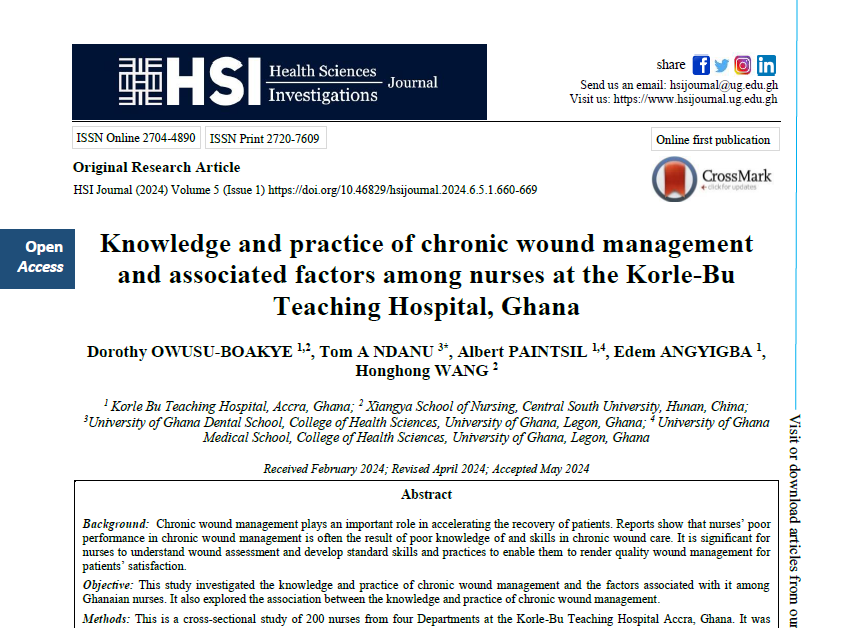Knowledge and Practice of Chronic Wound Management and Associated Factors among Nurses in Korle-Bu Teaching Hospital, Ghana
Abstract
Background: Chronic wound management plays an important role in accelerating the recovery of patients. Reports show that nurses’ poor performance in chronic wound management is often the result of poor knowledge of and skills in chronic wound care. It is significant for nurses to understand wound assessment and develop standard skills and practices to enable them to render quality wound management for patients’ satisfaction.
Objective: This study investigated the knowledge and practice of chronic wound management and the factors associated with it among Ghanaian nurses. It also explored the association between the knowledge and practice of chronic wound management.
Methods: This is a cross-sectional study of 200 nurses from four Departments at the Korle-Bu Teaching Hospital Accra, Ghana. It was conducted from October 1st to December 31st, 2020. Knowledge and practice on chronic wound management among nurses were examined using a researcher-developed scale. Descriptive analysis, Chi-square tests, and multivariable logistic regressions were used for the analysis using SPSS 25.0.
Results: A total of 200 nurses from the Surgery, Medicine, Obstetrics and Gynaecology, and Paediatrics departments were recruited. About two-thirds (63.5%, n = 127) had adequate knowledge of chronic wound management, and 36.5% (n = 73) had poor knowledge. Factors significantly associated with good knowledge included years of working in the department and frequent attendance of workshops on wound care. Also, 52.0% (n = 104) of the participants had good practice in chronic wound management, and 48.0% (n = 96) had poor practice in chronic wound management. Nurses who had frequently attended workshops on wound management after school were 3.326 times more likely to report good practice in chronic wound management (p < 0.001, 95% CI: 1.788 - 6.189). Participants with good knowledge were 3.136 times more likely to have good practice (p < 0.001, 95% CI: 1.579 - 6.226).
Conclusion: Knowledge and practice of chronic wound management are required for effective wound management. Nurses’ training in chronic wound management is associated with good knowledge and practice. Hence, there is a need to provide continuous professional training in wound management for nurses to improve quality care and outcomes.


